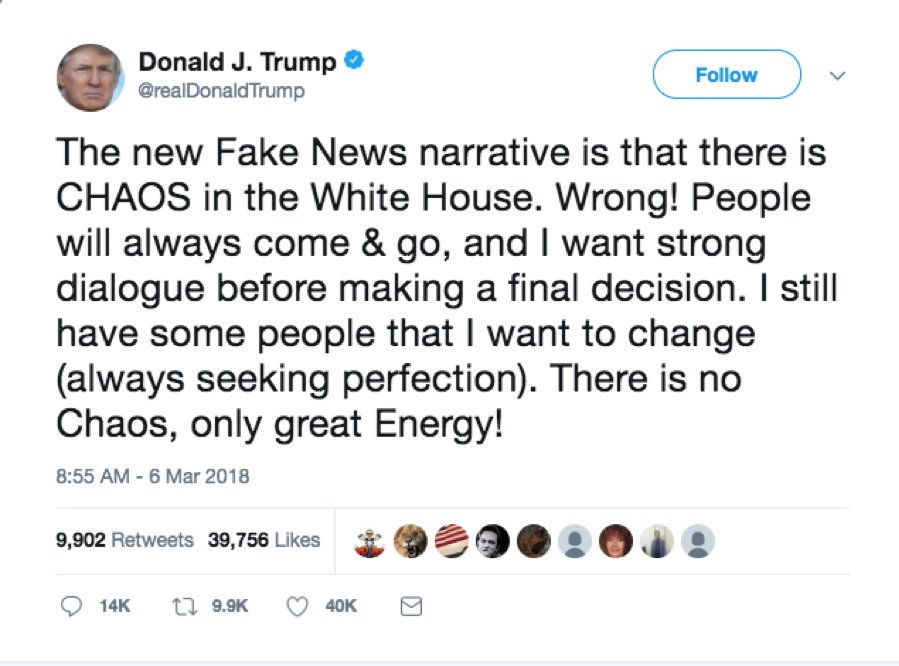US - #WeeklyAddress: March 5 -11: Trump rally, local TV stations bring "Fake News" under fire
Below are the most notable incidents regarding threats to press freedom in the US during the week of March 5 - 11:
Trump verbally attacks news outlets and journalists during a Pennsylvania rally
President Trump spoke at a congressional campaign event for Republican Rick Saccone in a conservative western Pennsylvania district on March 10, hurling multiple insults at the media. Trump called NBC news anchor Chuck Todd a “sleeping son of a bitch,” an insult he has used to demean the news anchor dating back to 2011. During the speech, the president also delivered a profane attack on CNN, calling the network “fake as hell.” The crowd joined in with enthusiastic boos at Trump’s mention of journalists and then proceeded to chant “CNN sucks!” CNN wasn’t the only network that the president targeted in his speech -- he also insulted affiliations of the NBCUniversal News Group: "NBC is perhaps worse than CNN, I have to tell you. And MSNBC is horrible." From presidential candidate to elected President, Trump has consistently spoken negatively about the media, at one point even calling the press the “lowest form of humanity.”

Leaked script shows controversial anti “fake news” promo to be aired on Sinclair-owned TV stations
Sinclair Broadcast Group, the largest broadcasting company in the country, has recently instructed its stations to denounce “fake news” stories from mainstream media outlets in a promotional campaign. Sinclair has a history of pushing right-wing politics on its affiliates. The company has been criticized in recent months for increasing pro-Trump “must-run” segments on its local stations to nine times per week. A proposed $3.9 billion deal to buy out Tribune Media that would provide Sinclair with an additional 42 television stations, leaving the company with more than 200 news television stations nationwide, has led to concerns about the future of independent journalism in the United States.
The script obtained by CNN states: "Some members of the national media are using their platforms to push their own personal bias and agenda to control 'exactly what people think' ... This is extremely dangerous to our democracy.” Other leaked documents describe the campaign as an “anchor delivered journalistic responsibility message” that they encourage stations to run frequently — during news time, not commercial time — beginning later this month. However, staffers at Sinclair have said the promos make them feel “uncomfortable.”
Media denied access during Education Secretary’s visit to Parkland, Florida
Members of the press were barred access to Education Secretary Betsy DeVos’ March 7 visit to Marjory Stoneman High School in Parkland, Florida, where 17 people were killed in a mass shooting last month. The Department of Education sent out a press release prior to her visit that stated the school visit was “closed to press out of respect for the students and faculty,” and though DeVos held a news conference following her visit, it abruptly ended after just five questions from the press. This led to criticism from some reporters, including Los Angeles Times editor and reporter Joy Resmovits.
Denial of press access has been a common occurrence in the Trump administration. The most recent incident was when White House Press Secretary Sarah Huckabee Sanders threatened to ban CNN’s senior White House correspondent Jim Acosta from future press pool sprays if he attempted to ask President Trump a question during his signing of the National Defense Authorization bill on December 12, 2017.
The United States ranks 43rd out of 180 countries in RSF's 2017 World Press Freedom Index after falling 2 places in the last year.
For the latest updates, follow RSF on twitter @RSF_en.



